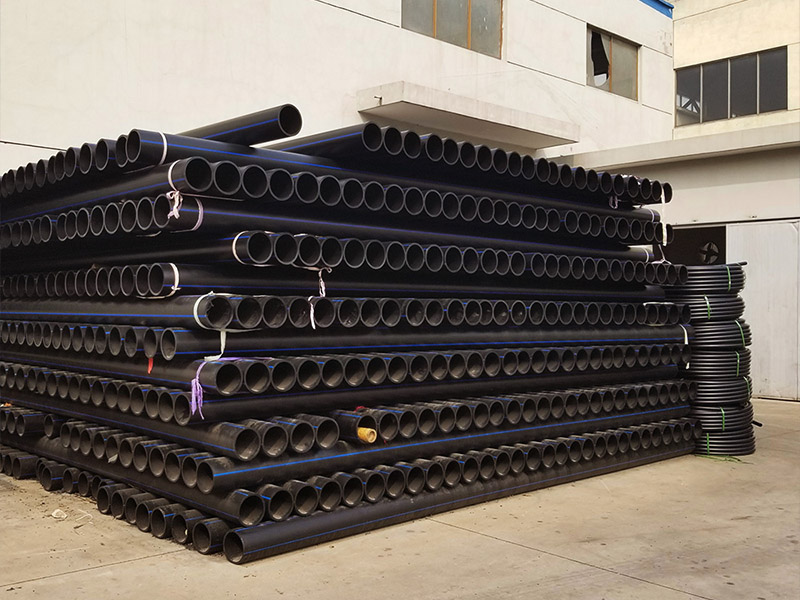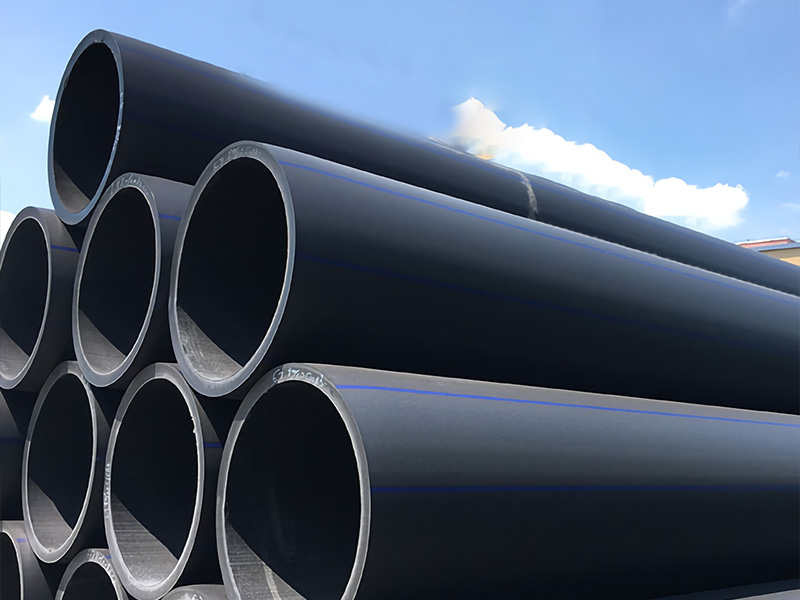
1. Superior Corrosion Resistance
HDPE pipes offer exceptional resistance to corrosion, ensuring they are unaffected by chemicals or oxidation in water. This keeps the water clean and safe for consumption. Unlike traditional metal pipes, HDPE pipes eliminate issues like pipe damage and water contamination caused by corrosion, ensuring long-term stability and reliability in water supply systems.
2. Lightweight and Easy Installation
Compared to traditional iron or copper pipes, HDPE pipes are significantly lighter, making transportation, cutting, and installation much easier. The convenience of handling HDPE pipes reduces installation time and costs. Additionally, their flexibility allows for coiled supply, minimizing the need for joint connections and reducing the risk of leaks and joint failures.
3. Excellent Flexibility and Elasticity
The flexibility and elasticity of HDPE pipes enable them to adapt to diverse terrains and challenging environments. They are highly resistant to external impacts and deformation, offering superior pressure resistance and seismic performance. This makes HDPE pipes particularly effective in underground installations and applications like river crossings.
 4. High Pressure Resistance
4. High Pressure Resistance
HDPE pipes have a smooth internal structure combined with an external corrugated design to enhance stiffness and improve pressure resistance. This robust construction ensures reliable performance in high-pressure water systems, making HDPE pipes an excellent choice for urban water supply and industrial applications where demand is increasing.
5. Eco-Friendly and Energy Efficient
The production process for HDPE pipes is resource-efficient, consuming less energy compared to other materials. HDPE is 100% recyclable, contributing to reduced waste and environmental pollution. Furthermore, the smooth inner walls of HDPE pipes lower water flow resistance, reducing energy consumption in pumping systems. These characteristics align with the growing demand for sustainable and eco-friendly materials.
6. Wide Range of Applications
Thanks to their superior properties, HDPE pipes are widely used in urban water supply systems, agricultural irrigation, industrial water transport, building plumbing, municipal drainage, and geothermal heating systems. Their durability, non-toxicity, ease of installation, and minimal maintenance requirements make them the preferred solution across various sectors.
Conclusion
HDPE pipes stand out as a superior choice for water supply and drainage systems. Their corrosion resistance, lightweight design, flexibility, pressure resistance, eco-friendliness, and versatility have made them indispensable in modern infrastructure projects. Whether for urban water systems or specialized industrial applications, HDPE pipes deliver long-lasting, reliable performance while supporting sustainable development goals.
 Zhongtong HDPE PIPE System Professional Supplier
Zhongtong HDPE PIPE System Professional Supplier